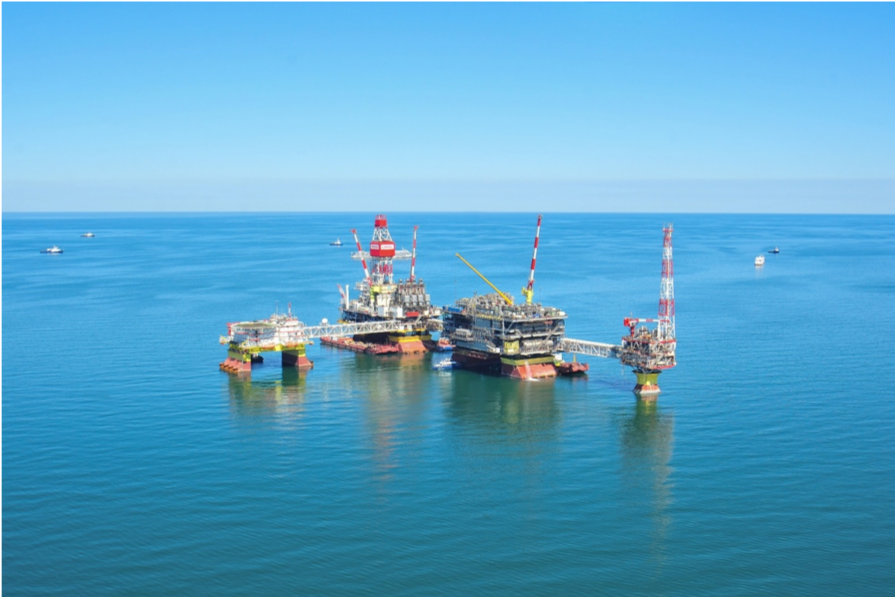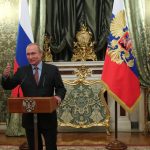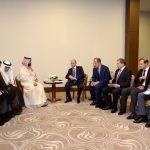RUSSIA MONITOR
Date: 15 May 2018
Trump, Iran and More Petrodollars for Russia
World oil prices are rising and so are the income to Russia’s budget. This is great news for the government and Vladimir Putin at the beginning of his new presidential term. Currently, Russian oil exporters earn one third more than six years ago. And prognoses for Moscow are optimistic. Does it mean that funds necessary to implement an ambitious “May decree” will be attainable?

On May 14, the price of Brent oil (to be delivered in July) on the London ICE exchange has risen to 78,1 dollar for a barrel. The historic level of 78 dollars has been exceeded for the first time since November 2014. The biggest reason for such increase in oil prices may be explained by Donald Trump’s decision to cancel an agreement on nuclear programme of Iran as well as consequent growing tension in the Middle East, escalating tension between Iran and Israel, increasing threat of war outbreak and prospect of re-closure of global market for Iranian oil. Announcing an embargo on Iranian oil may lead to the decrease in amount of hydrocarbons by 1 million barrels a day. The increase in prices has also been influenced by OPEC’s policy (and an agreement with producers from outside the group, with Russia, among others) and terrible situation in Venezuela. Merrill Lynch investment bank has predicted that in 2019 oil price will reach the level of almost 100 dollars for a barrel. Many analysts claim that these prognoses are exaggerated, mainly due to a rapid development of shale oil and gas extraction sector in the USA.
As estimated in Russia, every barrel of oil now gives Russian exporters 1000 roubles (16 dollars) more than six years ago, which gives an increase by 30 percent. This is great information for exporters, with Igor Sechin’s Rosneft ahead, but also for Putin and the Russian government at the beginning of the new term. The price of 60-70 dollars for a barrel would be enough to close the year without budget deficit for the first time for seven years. Over 70 dollars for a barrel would allow to again fill the reserve funds, which have been drastically depleting in last years. Russia’s Finance Ministry predicts a budget surplus this year on the level of 0,5 percent of GDP whereas Ministry of Economic Development estimates it on the level of 1,2 percent of GDP. Conscious government policy sustains the still weak rouble, which results in increase in budget incomes denominated in the national currency (as dollar incomes from oil export are still rising).
Additional petrodollars do not mean, however, that ambitious socio-economic goals set by Putin to the government in the decree from May 7 are more likely to happen then. According to the budget bill, any incomes from above the level of 40 dollars for a barrel are automatically directed to the reserve funds, not to the current expenditures. Government would have to change law and policy, which is rather unlikely to occur. Having the choice between spendings on reforms or maintaining business friends, the Kremlin will certainly choose the second option. Russian National Wealth Fund, where surplus from the oil sales is gathered, has recently become a purse which funds investment projects and most of all: helps companies and banks close to the Kremlin that have suffered in different extent from Western sanctions.
All texts published by the Warsaw Institute Foundation may be disseminated on the condition that their origin is credited. Images may not be used without permission.














